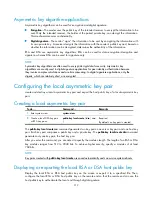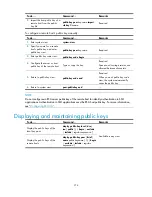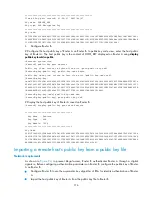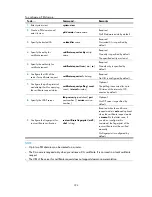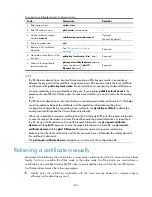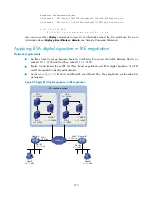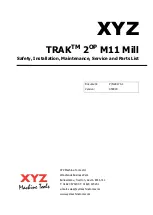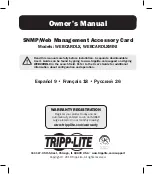
222
Task Remarks
Configuring an access control policy
Optional
Configuring an entity DN
A certificate is the binding of a public key and the identity information of an entity, where the identity
information is identified by an entity DN. A CA identifies a certificate applicant uniquely by entity DN.
An entity DN is defined by these parameters:
•
Common name of the entity.
•
Country code of the entity, a standard 2-character code. For example, CN represents China, and
US represents the United States.
•
FQDN of the entity, a unique identifier of an entity on the network. It consists of a host name and a
domain name and can be resolved to an IP address. For example,
www.whatever.com
is an
FQDN, where
www
is a host name and
whatever.com
a domain name.
•
IP address of the entity.
•
Locality where the entity resides.
•
Organization to which the entity belongs.
•
Unit of the entity in the organization.
•
State where the entity resides.
NOTE:
The configuration of an entity DN must comply with the CA certificate issue policy. You must determine,
for example, which entity DN parameters are mandatory and which are optional. Otherwise, certificate
requests might be rejected.
To configure an entity DN:
To do…
Command…
Remarks
1.
Enter system view.
system-view
—
2.
Create an entity and enter its
view.
pki entity
entity-name
Required.
No entity exists by default.
3.
Configure the common name
for the entity.
common-name
name
Optional.
No common name is specified by
default.
4.
Configure the country code
for the entity.
country
country-code-str
Optional.
No country code is specified by
default.
5.
Configure the FQDN for the
entity.
fqdn
name-str
Optional.
No FQDN is specified by default.
6.
Configure the IP address for
the entity.
ip
ip-address
Optional.
No IP address is specified by
default.





